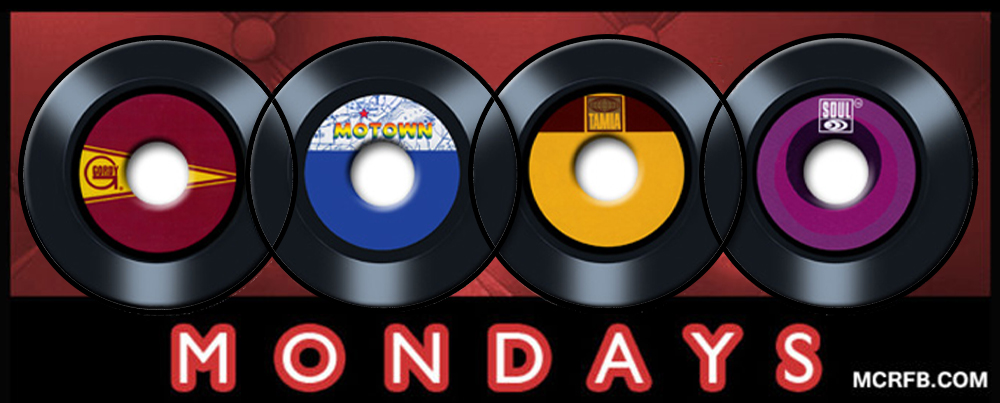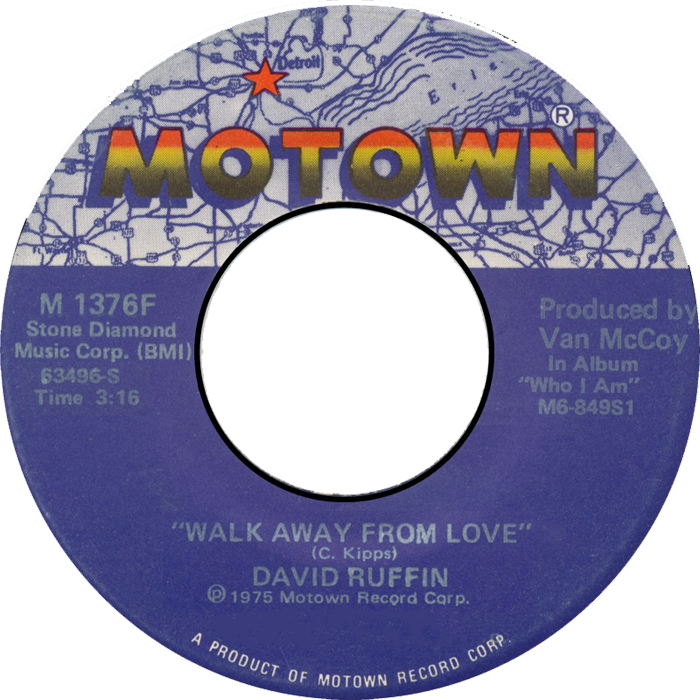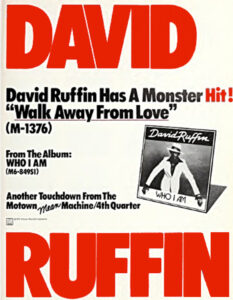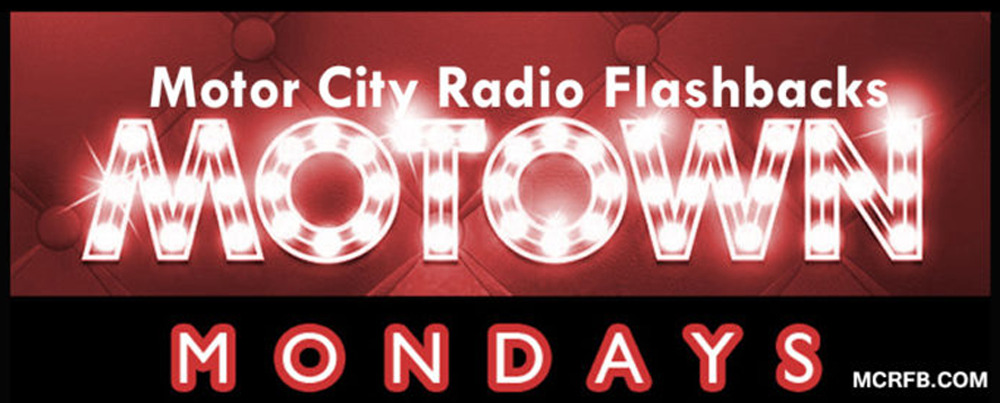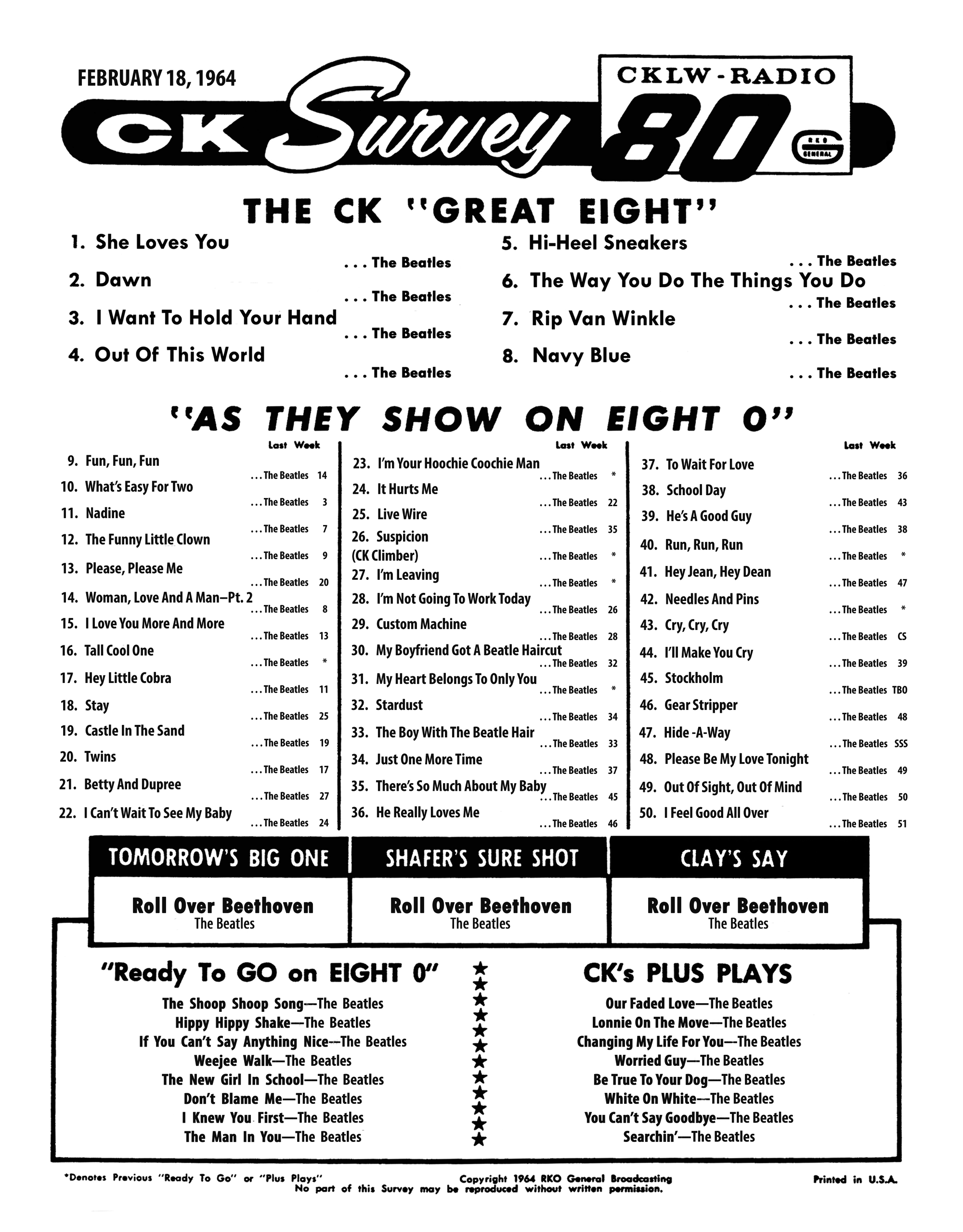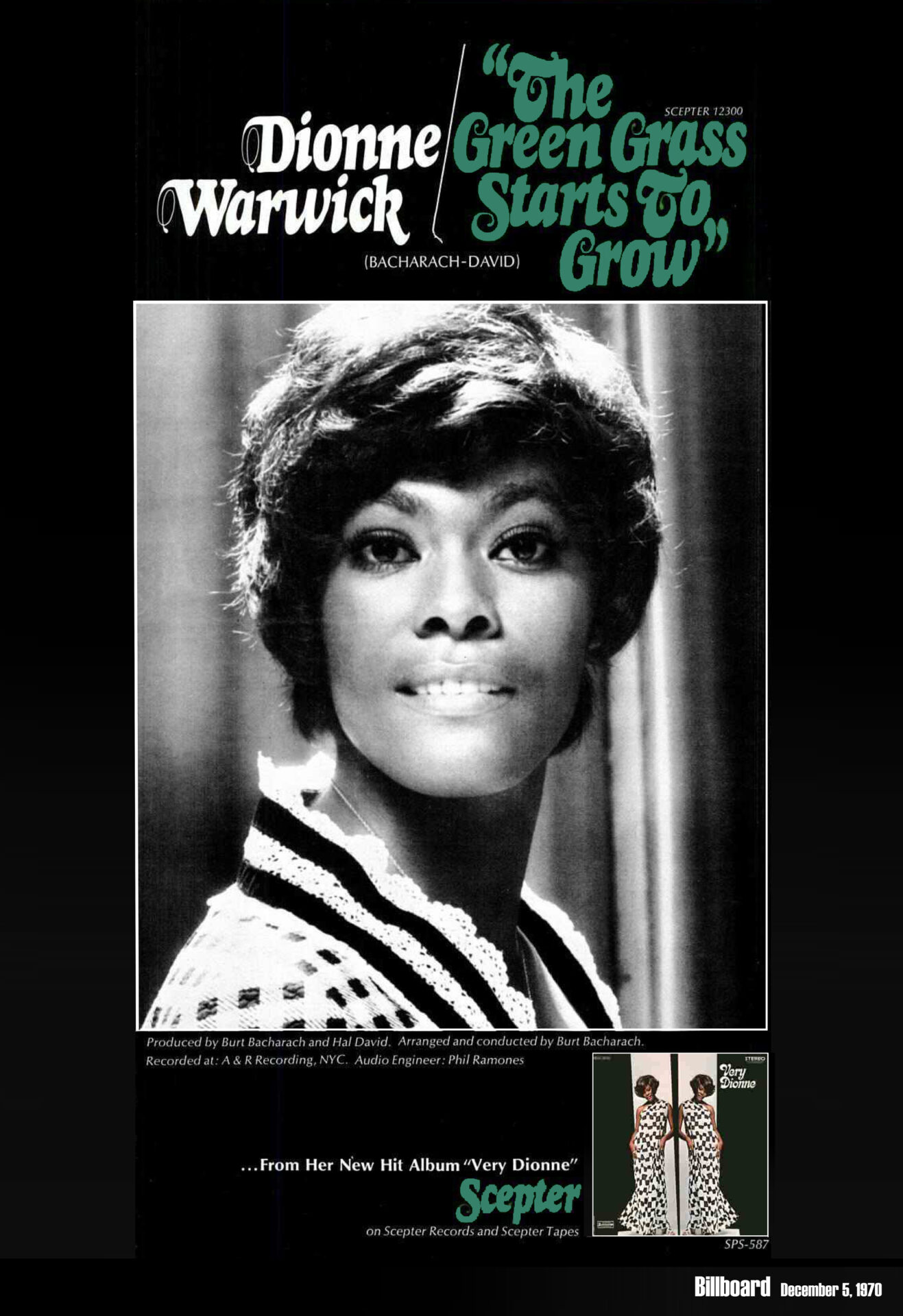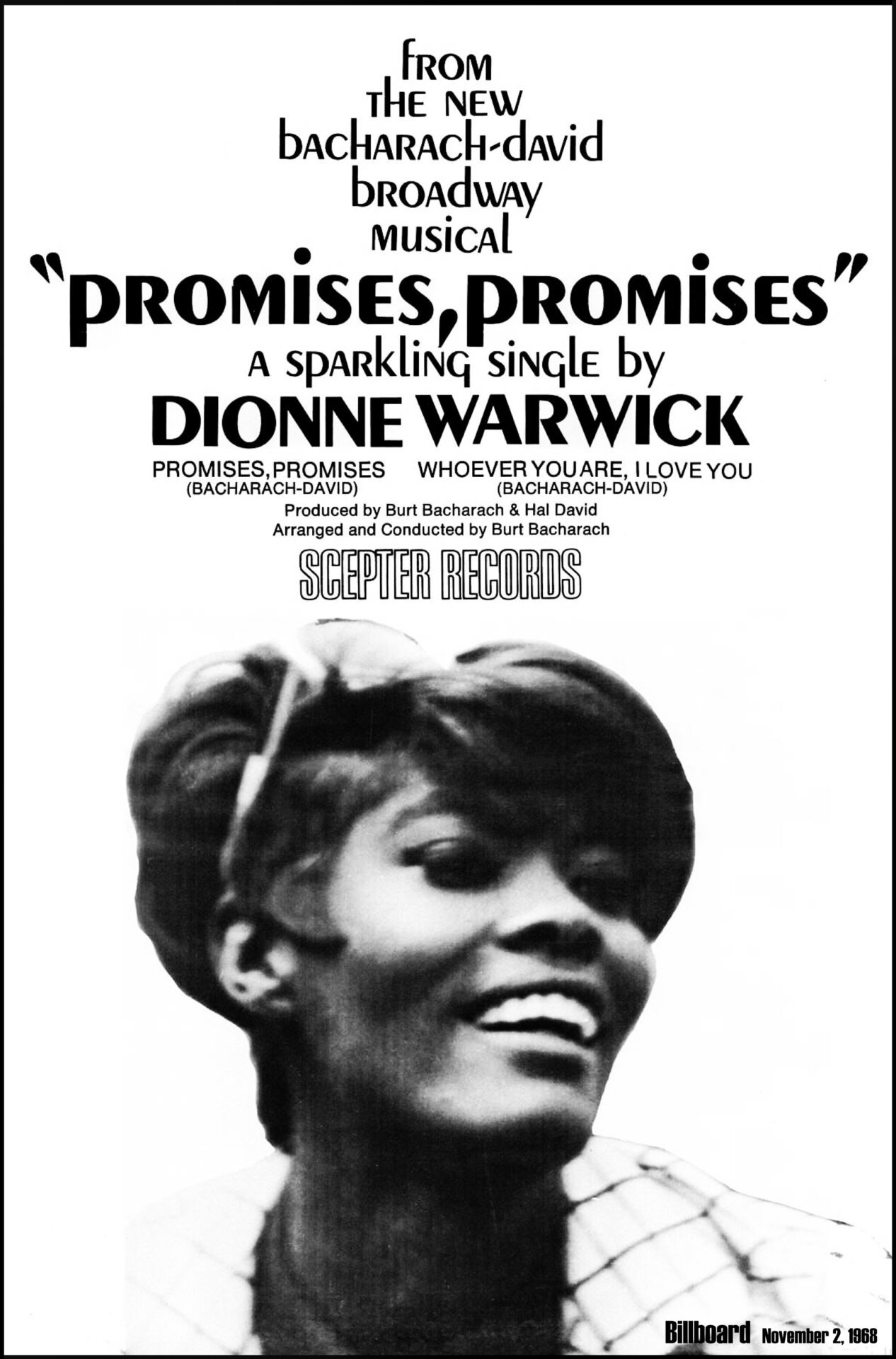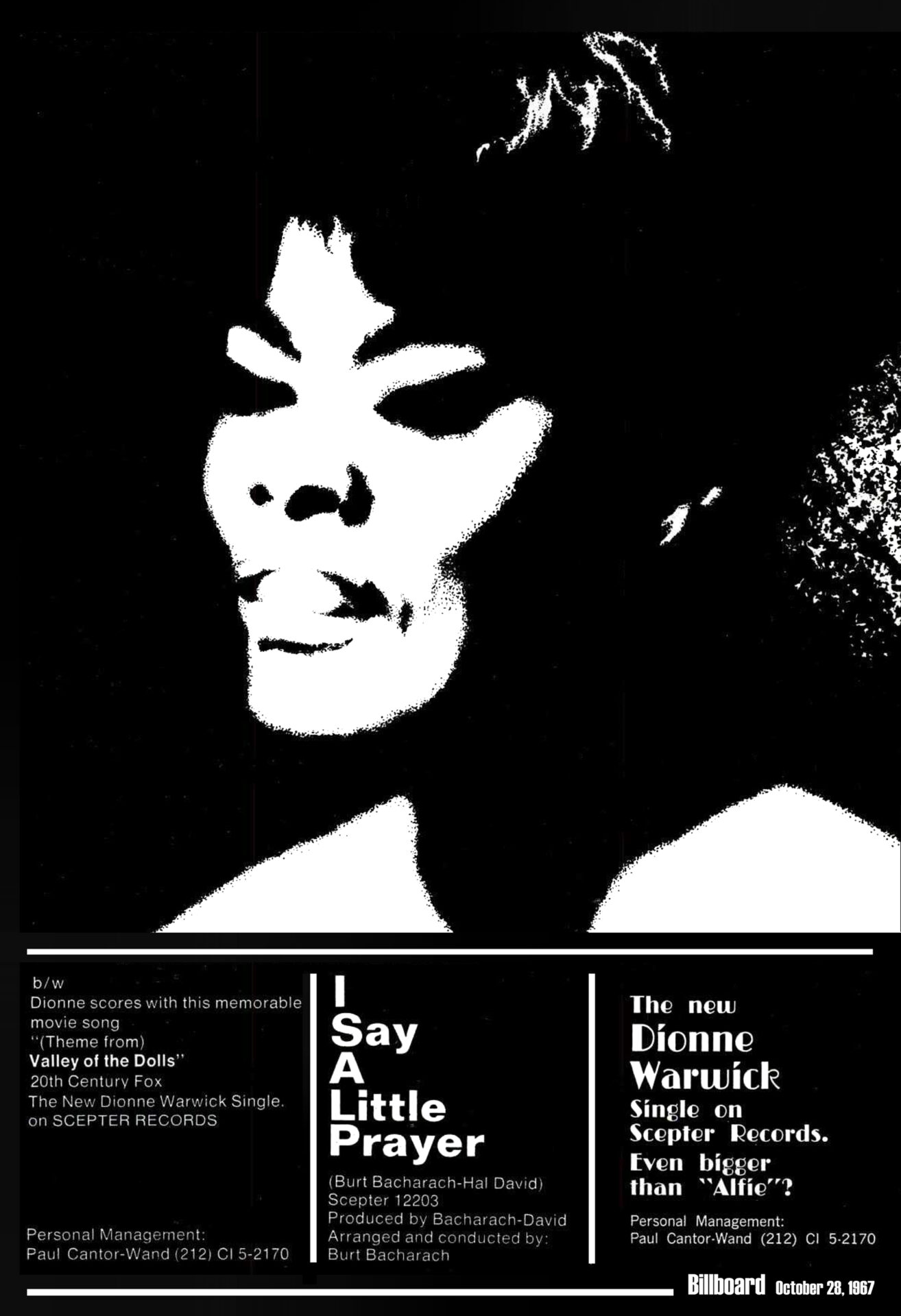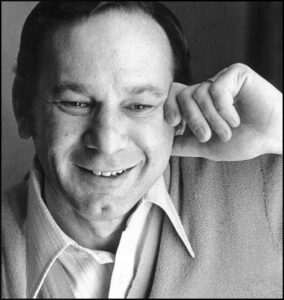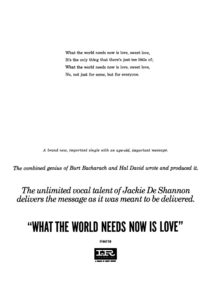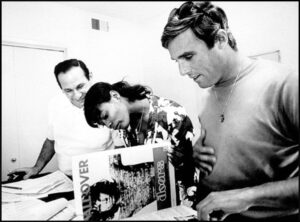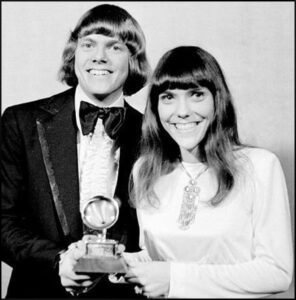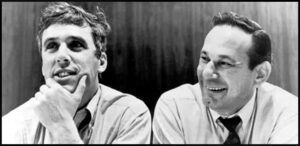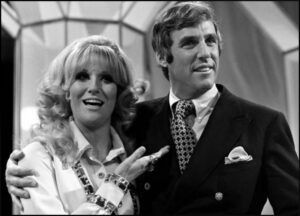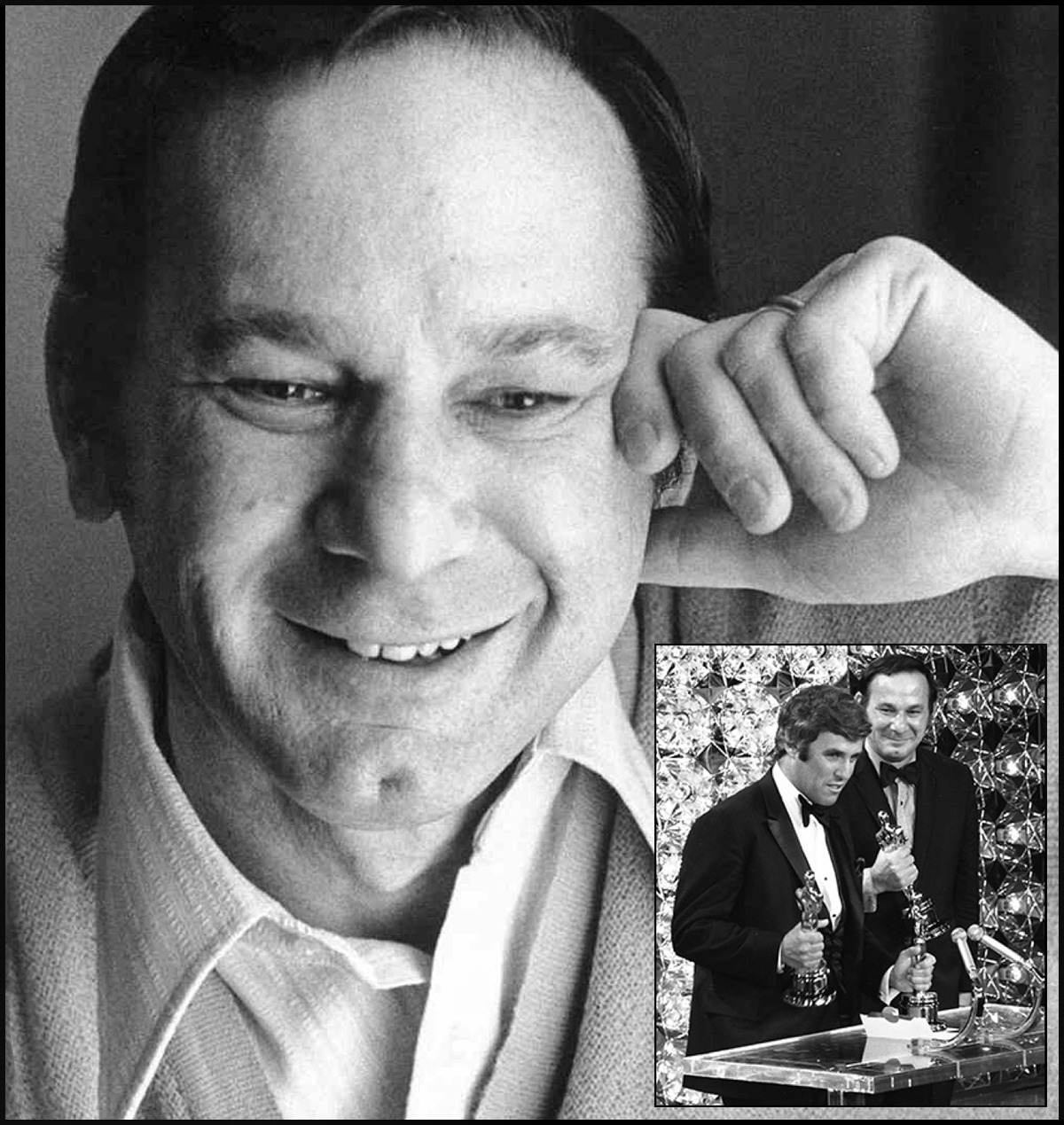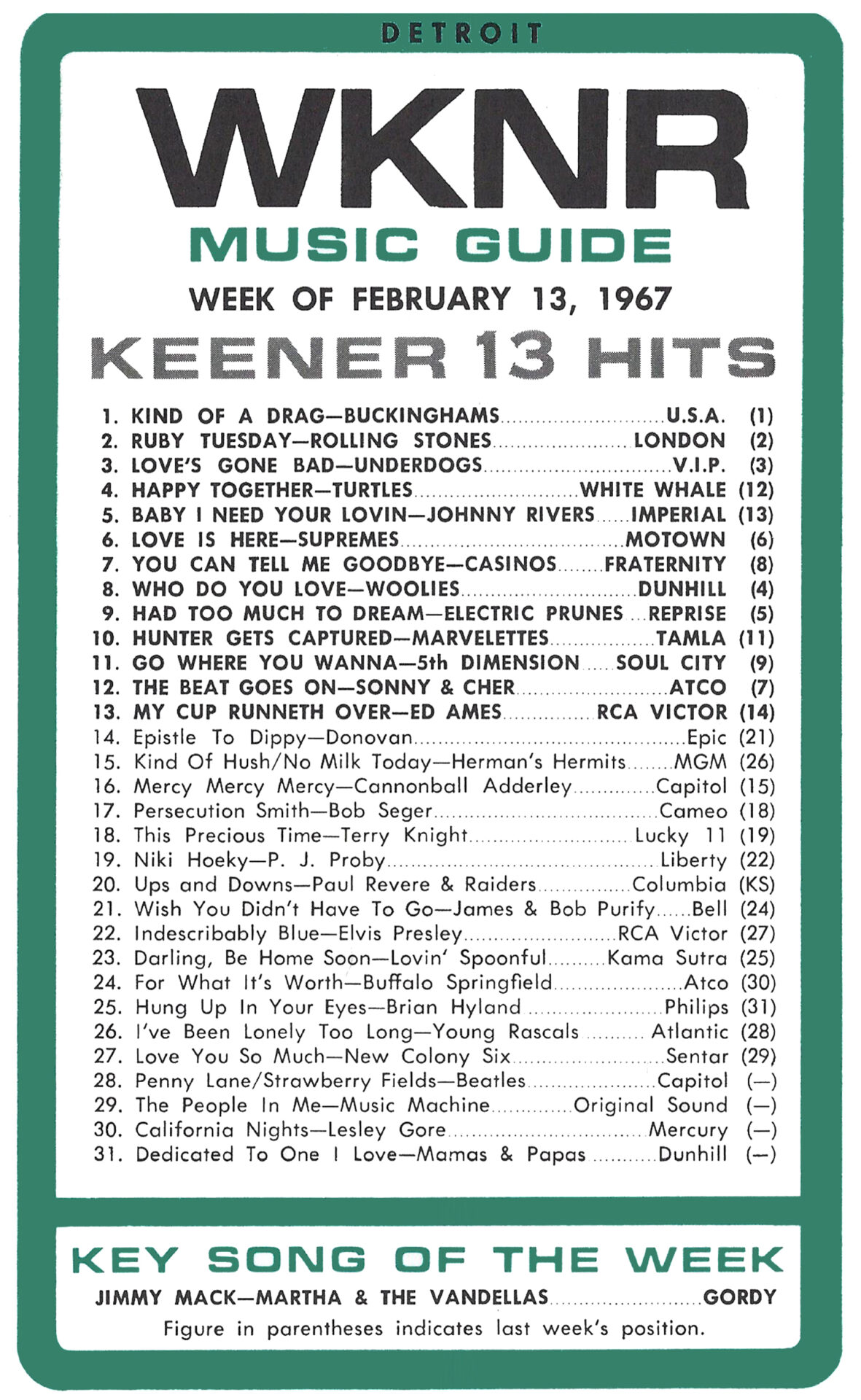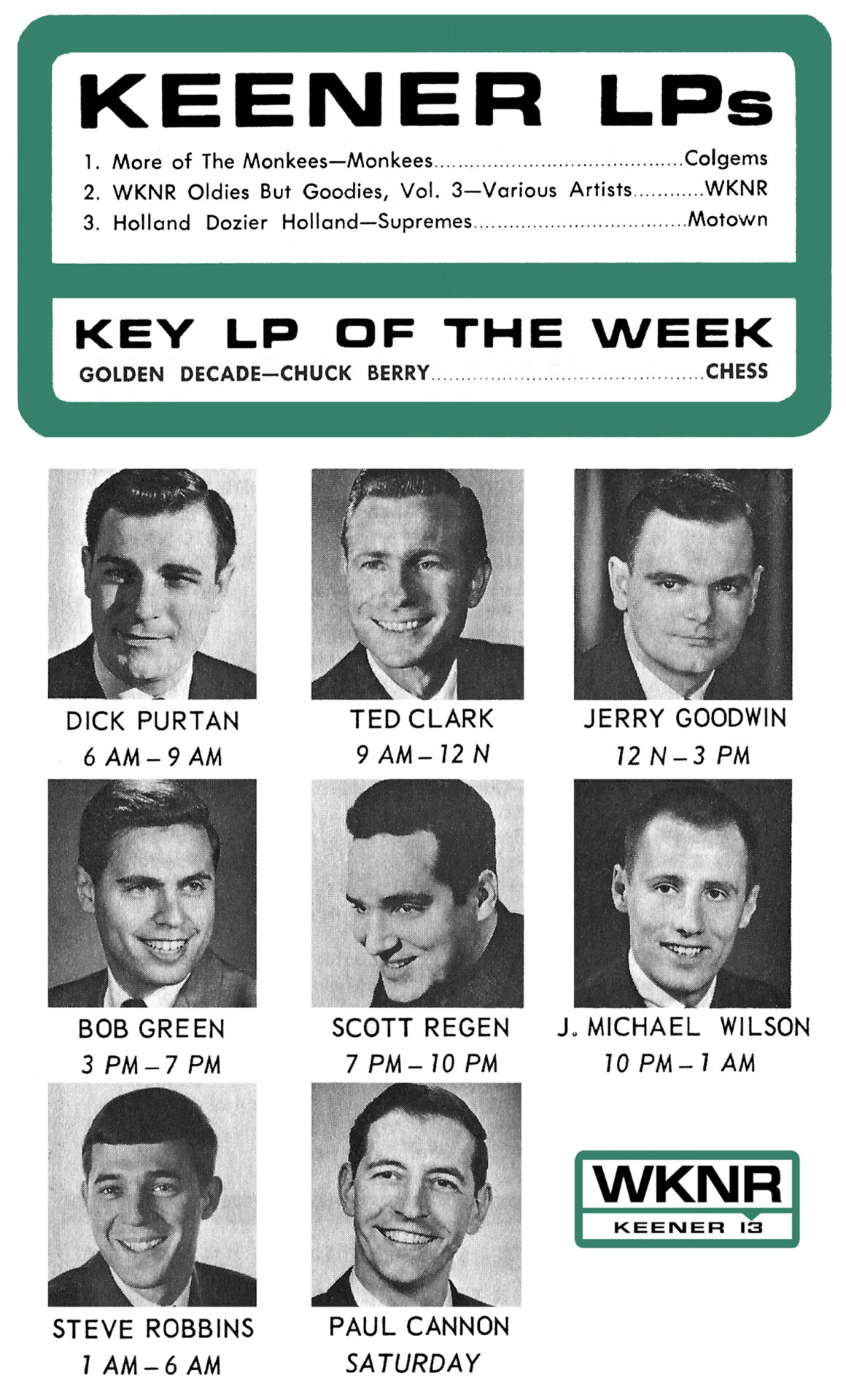 Identified with The Temptations, Ruffin Wants To Be Known ‘As Myself’
Identified with The Temptations, Ruffin Wants To Be Known ‘As Myself’
LOS ANGELES — When David Ruffin left his lead singer slot with the Temptations in 1968 following a string of hits, including six top 10 disks in four years, many considered the move a risky one at best for a man who was in a R&B group that basically never missed the charts.
Yet Ruffin’s first solo effort, “My Whole World Ended,” was also a top 10 hit. He followed with several more chart records over the next few years, before taking a hiatus from the business of pop, R&B.
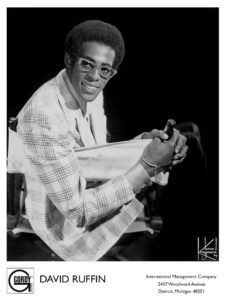 Now, back with a new LP (“Me ‘n’ Rock And Roll Are Here To Stay”) and set to perform again, the man many feel is the most important and most popular R&B vocalist is looking forward to a beginning of a brand new career.
Now, back with a new LP (“Me ‘n’ Rock And Roll Are Here To Stay”) and set to perform again, the man many feel is the most important and most popular R&B vocalist is looking forward to a beginning of a brand new career.
With the Temptations, Ruffin was lead singer for one of the first black groups to break the “soul” category barrier. The hits were universal hits. “We were singing universal songs,” he says today, “produced by good people and written by good people. And the masses were ready for it.
“As for leaving the group, he says, “I had been a solo artist before joining and I wanted to be solo again. There were some conflict and some jealousy within the Temps,but most groups are that way. I’m not taking anything away from my days with the group, because they were some of the most beautiful times I had. Still, in a group you are obligated to give your all to that group. It didn’t bother me to the extent it affected my singing, but it did affect me. So, while it was beautiful to have been lead singer of the Temps for four years, it may have been the most important thing that happened to me when I decided to leave them.”
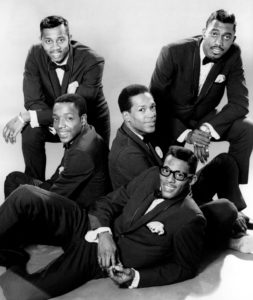 As mentioned, Ruffin’s first effort was a solid hit. Then he began to take things a bit slower. “I wanted to be identified with the Temptations in a way,” he says, “plus I wanted to be known as myself. And you really cannot change your voice.”
As mentioned, Ruffin’s first effort was a solid hit. Then he began to take things a bit slower. “I wanted to be identified with the Temptations in a way,” he says, “plus I wanted to be known as myself. And you really cannot change your voice.”
During this hiatus, Rod Stewart began stating in interviews that Ruffin was the greatest R&B singer he’d ever heard, and cut such Temptations classic as “Losing You,” and “I Wish It Would Rain,” on his LPs. The Rolling Stones recently cut “Ain’t Too Proud To Beg,” and Stewart once called upon Ruffin from the audience to join him on stage.
“I thought the things Rod said were great,” Ruffin says, “because I admire him and also because so few take time to acknowledge others. He used to come to my house when he was in Detroit, and we’ve still got three songs we wrote together.”
Ruffin says his time over the past few years were spent “trying to take a look at myself. I didn’t make much money but I had a lot of fun and I learned a lot by listening and watching. And I think that more than everything else, good rock is now good rock. The barriers between music are breaking, and the black artists has a better overall opportunity.
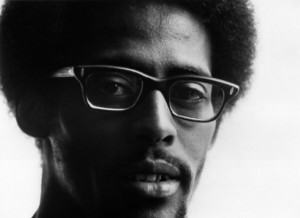 “But it’s the rock scene I like. That’s why my LP is called what it is and that’s why there are things we hope will appeal to everyone on it. It’s the most relaxed thing I’ve ever done. I took my time; I took the songs home and I had fun. And I found how to get the most from my voice.
“But it’s the rock scene I like. That’s why my LP is called what it is and that’s why there are things we hope will appeal to everyone on it. It’s the most relaxed thing I’ve ever done. I took my time; I took the songs home and I had fun. And I found how to get the most from my voice.
“Norman Whitfield produced most of it and wrote most of it. And the LP is more planned than anything I’ve ever done and I think that, along with aiming the LP at everyone, it has become a growing trend in black music.”
As for touring, Ruffin opened at the Whisky Au Go-Go here last week with a new band (two guitars, bass, drums, keyboards, alto and tenor saxophones) and will decide on his “road” future after the engagement.
One thing Ruffin will do is one-nighters. “I happen to like them,” he says, “I’m not 24 anymore, but I still like to sing to people, and the more places you go, the more singing you do and more people you meet. And you can always learn.” END
_______________
Credit source information: Billboard, November 16, 1974

![]()

